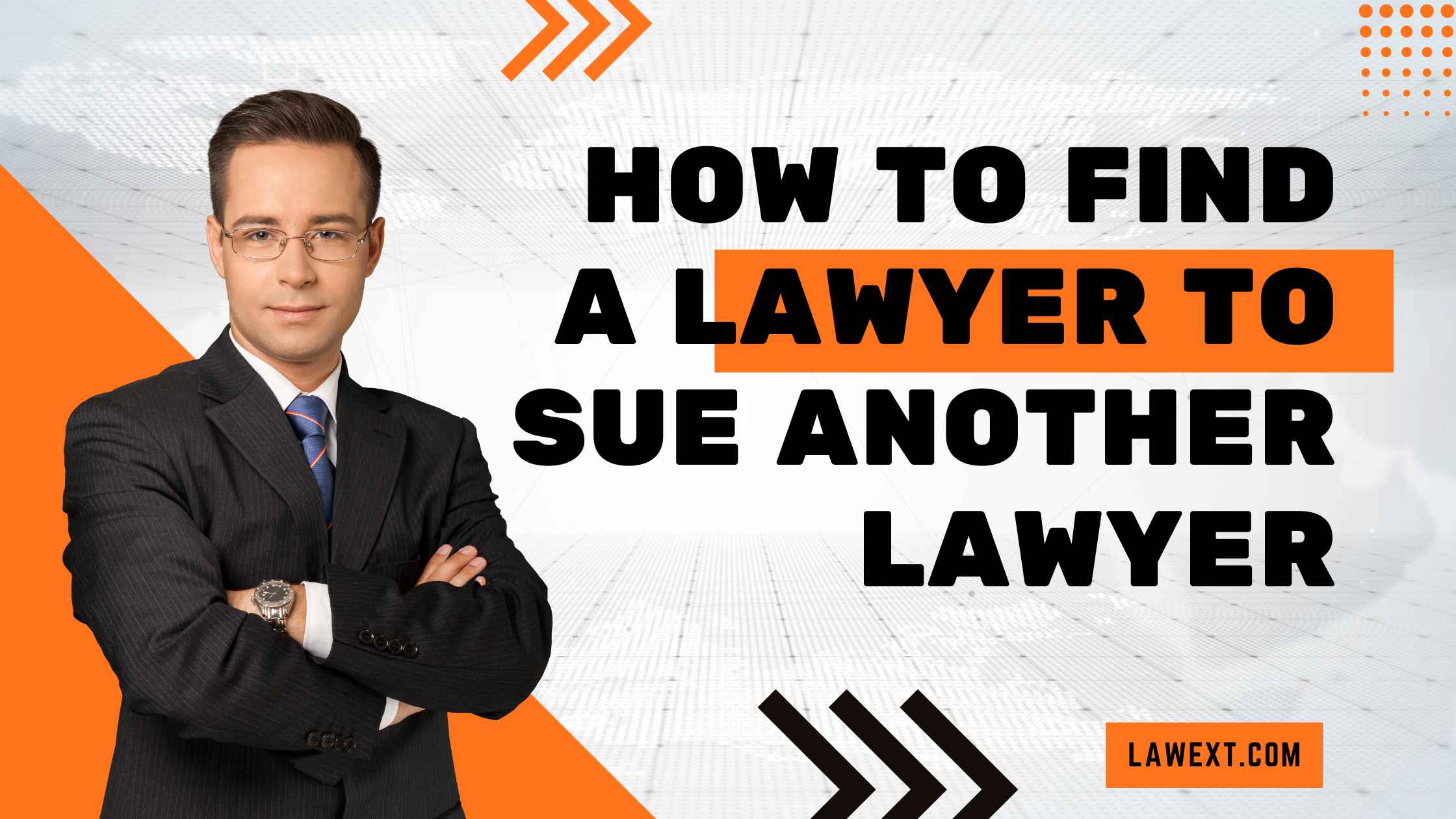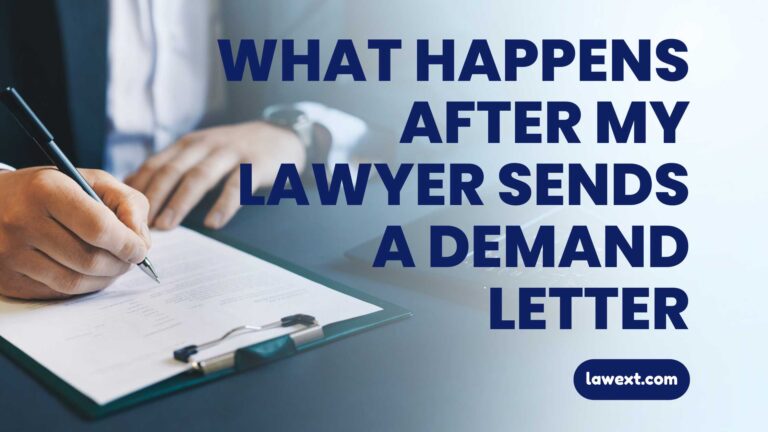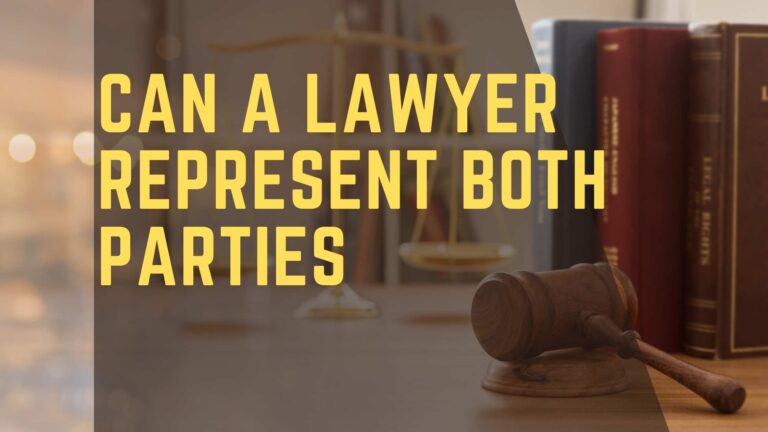How to Find a Lawyer to Sue Another Lawyer?

To find a lawyer to sue another lawyer, conduct thorough research online and offline, seek recommendations, check online directories and legal associations, and schedule consultation meetings for a suitable match based on expertise and experience. When faced with the need to sue another lawyer, finding a reliable legal professional becomes crucial.
Table of Contents
How to Find a Lawyer to Sue Another Lawyer? navigating the process of choosing the right attorney can be overwhelming. With various methods available, such as conducting research online and offline, seeking recommendations, checking online directories, and consulting legal associations, you can ensure a suitable match. By following these steps, you can find a lawyer who possesses the expertise and experience necessary to handle your case effectively.

Credit: www.karnsandkarns.com
Identifying The Need For Legal Representation
Discovering the importance of legal representation is crucial when seeking a lawyer to sue another lawyer. Find a skilled attorney who specializes in legal malpractice to navigate your case effectively.
Understanding The Importance Of Legal Representation
At some point in life, you may find yourself in a situation where you need to sue another lawyer. This can be a complex and delicate matter that requires careful consideration and expertise. Identifying the need for legal representation is crucial to ensure that your case is handled effectively. Having a qualified lawyer by your side can help navigate the intricacies of the legal system, provide valuable advice, and maximize your chances of a successful outcome.
There are several reasons why having legal representation is essential. Firstly, lawyers have expertise in the legal field, which allows them to understand the complexities of the law and how it applies to your case. They have the necessary knowledge and experience to analyze your situation, identify potential legal issues, and develop a strong legal strategy.
Secondly, lawyers are familiar with legal procedures and protocols. They know how to draft legal documents, collect evidence, and present arguments in court. Their experience can be invaluable in ensuring that all necessary steps are taken, deadlines are met, and paperwork is filed correctly.
Thirdly, a lawyer can offer you objective advice. When you’re emotionally invested in a case, it can be challenging to make rational decisions. A lawyer can provide you with an impartial viewpoint, help you understand the strengths and weaknesses of your case, and guide you toward the best course of action.
Assessing The Merits Of Filing A Lawsuit
Before deciding to sue another lawyer, it’s crucial to assess the merits of your case. Taking legal action can be time-consuming, emotionally draining, and expensive. Therefore, it’s essential to evaluate whether the potential benefits outweigh the drawbacks.
Consider the following factors when assessing the merits of filing a lawsuit:
1. Evidence: Determine if you have sufficient evidence to support your claim. This may include emails, contracts, or any other documentation that proves the other lawyer’s negligence or misconduct. Strong evidence can significantly strengthen your case.
2. Legal Violations: Identify if the other lawyer has violated any legal or ethical rules. This could include breaches of attorney-client privilege, conflicts of interest, or fraudulent behavior. Understanding the gravity of the violations can help you gauge the likelihood of success.
3. Damages: Assess the extent of damages you have suffered as a result of the other lawyer’s actions. This could include financial losses, emotional distress, reputational damage, or any other harm. The severity of the damages can help determine the potential compensation you may receive.
4. Cost-Benefit Analysis: Consider the financial costs involved in pursuing legal action. Legal fees, court costs, and other associated expenses can add up quickly. Compare these expenses to the potential compensation or resolution you could achieve through a lawsuit.
By evaluating these factors, you can better understand whether pursuing legal action is a viable option. Remember, consulting with a lawyer specializing in legal malpractice or professional misconduct can provide you with a professional assessment of your case’s strength and potential outcomes.
In conclusion, identifying the need for legal representation and assessing the merits of filing a lawsuit are crucial steps when considering suing another lawyer. By understanding the importance of legal representation and carefully evaluating the strengths and weaknesses of your case, you can make an informed decision about pursuing legal action. Keep in mind that every case is unique, and consulting with a qualified lawyer is essential to ensure your rights are protected.
Researching Potential Lawyers
When researching potential lawyers to sue another lawyer, it’s crucial to carefully consider your options to ensure you’re making the best choice for your case. There are several key steps you can take to find the right lawyer for your needs.
Exploring Different Types Of Lawyers
There are various types of lawyers, each specializing in different areas of law. Family lawyers specialize in legal matters related to the family, such as divorce or child custody. Personal injury lawyers focus on cases involving physical or psychological injuries caused by the negligence of another party. Civil litigation lawyers handle a wide range of disputes, including those between individuals and organizations.
Utilizing Online Resources To Find Lawyers
Online legal directories like Avvo and FindLaw allow you to search for lawyers based on their location, practice area, and client reviews. Bar associations’ websites provide information on licensed lawyers in your area. You can also utilize search engines to gather information about potential lawyers and their track records.
Seeking Recommendations From Trusted Sources
Seek recommendations from friends and family who have had positive experiences with lawyers. Professional networks and legal aid organizations are also valuable sources for lawyer recommendations. Additionally, consulting with other attorneys can provide insights into the reputations of potential lawyers.
Evaluating Potential Lawyers
When searching for a lawyer to sue another lawyer, it’s crucial to evaluate their experience, expertise in litigation, and success rate in similar cases. Look for recommendations, read online reviews, and schedule consultations to find the right legal representation for your case.
Reviewing Credentials And Experience
When evaluating potential lawyers to sue another lawyer, it is crucial to review their credentials and experience. Look for lawyers who specialize in legal malpractice or professional misconduct cases. Being board-certified or having additional certifications can indicate a lawyer’s expertise. Don’t forget to review their educational background, years of experience, and whether they have handled similar cases in the past.
Assessing The Lawyer’s Reputation
Assessing the reputation of a lawyer is a fundamental step in finding the right one to handle your case. Begin by searching online for reviews, testimonials, or any potential red flags associated with the lawyer. Look for positive feedback from previous clients and check for any disciplinary actions taken against the attorney. Additionally, inquire about their success rate and whether they have any notable achievements in legal malpractice cases.
Considering Communication And Availability
Effective communication is key when working with a lawyer on a complex legal matter. Ensure that the lawyer you choose is responsive and attentive to your concerns. During the initial consultation, pay attention to their listening skills and whether they address your questions thoroughly. Inquire about their preferred mode of communication and how often they will update you on the progress of your case. Availability is another crucial factor, as you want a lawyer who will give your case the attention and time it deserves.
Preparing For Initial Consultations
Gathering Relevant Documents And Information
Before meeting with a lawyer to discuss suing another lawyer, it’s crucial to gather all the necessary documents and information related to your case. By doing so, you can provide the attorney with a comprehensive overview of the situation, ensuring they have all the details needed to provide accurate advice.
Start by collecting any written communications between you and the lawyer you intend to sue. This can include emails, letters, or text messages. Make sure to have copies of any contracts, invoices, or billing statements related to the legal services provided by the lawyer in question. These documents will serve as evidence and help your attorney understand the nature of your dispute.
If you have any records outlining the fees you paid for legal services or any receipts for expenses incurred as a result of the lawyer’s misconduct, gather those as well. This evidence will support your claim for damages in the event of a successful lawsuit.
If there were any witnesses to the events surrounding your case, try to gather their contact information and statements about what they witnessed. Witness accounts can provide valuable corroboration of your claims and strengthen your case.
Formulating A List Of Questions For The Lawyer
During your initial consultation with a lawyer, it’s essential to ask targeted questions to assess their expertise and determine if they’re the right fit for representing you in a lawsuit against another lawyer. By preparing a list of questions in advance, you can make the most of your limited time together.
Consider asking the following questions:
- What experience do you have with legal malpractice cases?
- Have you handled cases similar to mine in the past? If so, what were the outcomes?
- How do you charge for your services? Are there any upfront fees or retainer requirements?
- What is your strategy for pursuing a lawsuit against another lawyer?
- Can you provide me with references from past clients?
- How long do you estimate the legal process will take?
- What are the potential risks and challenges we may encounter during the lawsuit?
These questions will help you gauge the lawyer’s expertise, assess their track record, understand their fee structure, and get a sense of their approach to handling your case.
Making An Informed Decision
When considering suing another lawyer, it is crucial to make an informed decision about the lawyer you choose to represent you. This decision can significantly impact the outcome of your lawsuit. There are several important factors to consider when selecting a lawyer, including comparing fees and payment arrangements, assessing their strategy for the lawsuit, and trusting your gut instinct. Making these considerations will help ensure you choose the right lawyer to effectively represent you in your legal proceedings.
Comparing Fees And Payment Arrangements
When looking for a lawyer to represent you in a lawsuit against another lawyer, it’s essential to carefully compare their fees and payment arrangements. Be sure to inquire about their hourly rate, retainer fees, and any additional costs that may arise during the lawsuit. Understanding the financial aspects of working with a lawyer will help you make an informed decision based on your budget and financial situation.
Assessing The Lawyer’s Strategy For The Lawsuit
It’s important to assess the lawyer’s strategy for the lawsuit when considering legal representation. Discuss with potential lawyers how they plan to approach the case, their experience with similar lawsuits, and their track record of success. Understanding their strategy and approach will help you determine if they are the right fit to effectively represent you in your lawsuit against another lawyer.
Trusting Your Gut Instinct
Trusting your gut instinct is a crucial factor in choosing a lawyer to sue another lawyer. Pay attention to how you feel during your initial interactions with potential lawyers. Consider their communication style, level of empathy, and overall professionalism. Trusting your instincts about a lawyer’s character and demeanor can be a valuable tool in making an informed decision about who will best represent your interests in the legal proceedings.

Credit: texaslegalmalpractice.com
Conclusion
Finding a lawyer to sue another lawyer is a complex process. It requires thorough research, careful consideration, and the guidance of legal experts. By following the steps outlined in this blog post, you can navigate this challenging situation and seek the justice you deserve.
Remember to approach this process with patience and diligence, and never hesitate to seek professional advice.
Amelia Justiceberg, a distinguished legal luminary, thrives on the intersection of empathy and legal acumen. As a prominent family law attorney, she orchestrates compassionate resolutions amidst complex dynamics. Justiceberg's courtroom finesse and dedication to fairness define her practice. Beyond litigation, she ardently advocates for social justice, solidifying her reputation as an influential force in the legal landscape.






